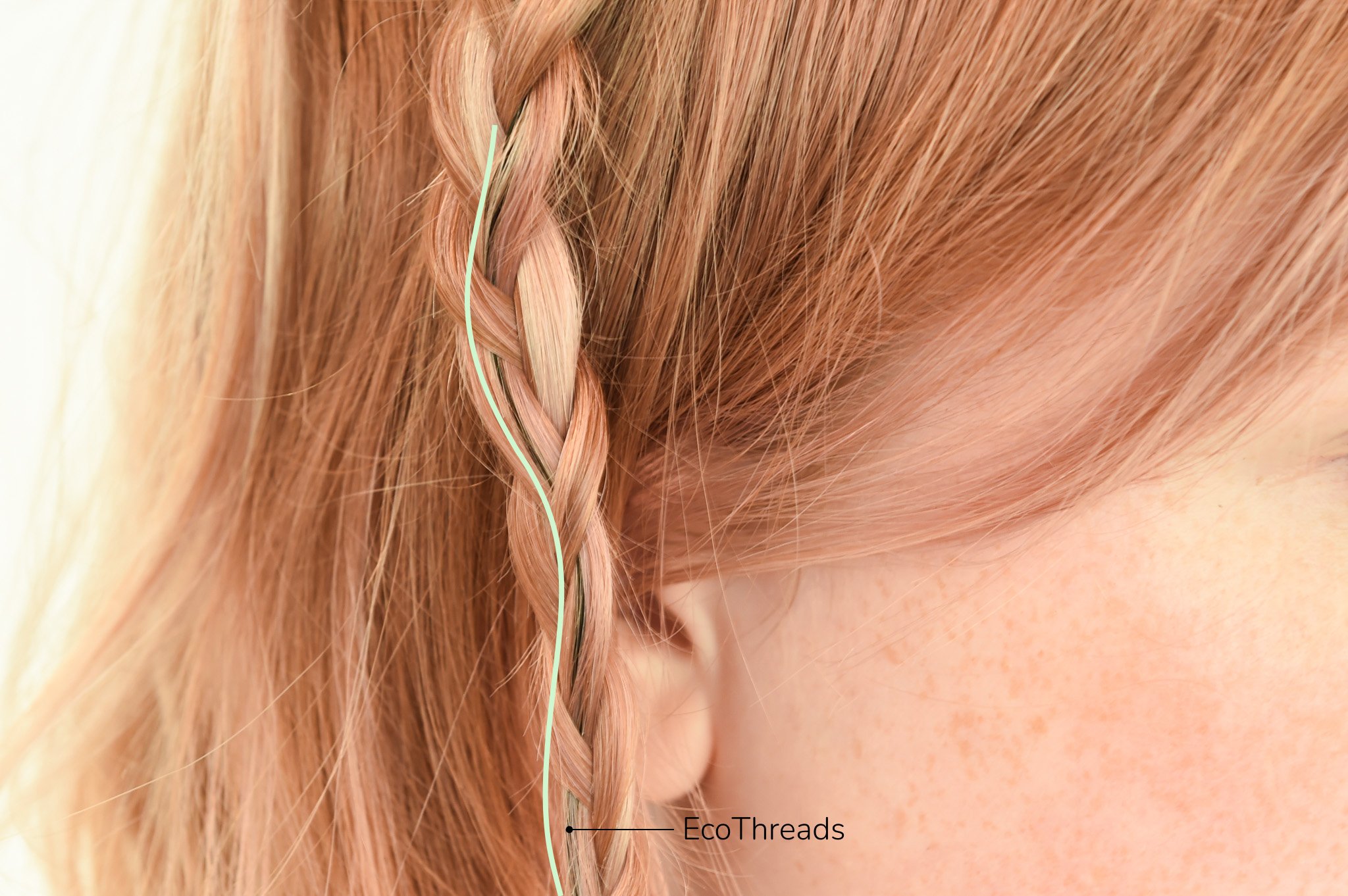EcoThreads: Prototyping Biodegradable E-textiles Through Thread-based Fabrication
We present EcoThreads, a sustainable e-textile prototyping approach for fabricating biodegradable functional threads involving two thread-based fabrication methods, wet spinning and thread coating, to fabricate functional threads from biomaterials or modify natural fiber to achieve conductive or interactive functionality.
E-textiles are projected to reach a market size of US $1.3 Billion by 2032. As an emerging field, there have been mass prototyping efforts to explore the potential of e-textile products. In the field of Human-Computer Interaction (HCI), this often involves extensive swatch-making by individual creators or workshops in STEM learning, maker spaces, or research labs. Regardless of the final application, the material choice is similar: conductive threads spun at industrial mills. As a result, these rapidly prototyped e-textile projects become a mixture of textile and electronic waste that presents challenges to recycling. Through EcoThreads, we aim to address this lack of attention to the transiency aspect of these e-textile practices, providing a biodegradable, material-based, and sustainable approach to e-textile prototyping.
Publication:
EcoThreads: Prototyping Biodegradable E-textiles Through Thread-based Fabrication
Jingwen Zhu, Lily Winagle, Cindy Hsin-Liu Kao
Proceedings of the CHI Conference on Human Factors in Computing Systems (CHI ’24)
Project Credits:
Hybrid Body Lab at Cornell University, directed by Cindy Hsin-Liu Kao
Research Team: Jingwen Zhu (Lead Researcher), Lily Winagle, Cindy Hsin-Liu Kao (Lab Director)
Press Inquiries: Press Image Kit: Download Here (License: CC by-NC-SA 4.0) Press Contact: Prof. Dr. Cindy Hsin-Liu Kao, cindykao@cornell.edu
This project is funded by the National Science Foundation IIS-2047249, Cornell University College of Human Ecology Salles Schafer Fund, Cornell University College of Human Ecology Engaged Research Seed Grant, and Cornell Atkinson Center for Sustainability Academic Venture Fund. Additionally, Lily Winagle’s participation is supported by the NSF REU program.
We present EcoThreads, a sustainable e-textile prototyping approach for fabricating biodegradable functional threads.
Ecothreads Biodegradable Interactive Textile Design Space
We identified biodegradable conductive and interactive materials suitable for thread-like form factors, and determined their compatible binder materials to maximize strength and functionality.
EcoThreads Sustainable E-Textile Life Cycle Prototyping Workflow
Through literature review, expert feedback and prototyping with a variety of sustainable materials, we summarized this workflow to address how EcoThreads can be used in a circular design process.
EcoThreads applications:
Woven pH Sensing Underwear.
Knitted Cooling Gel for Fever.
Woven Heat sensing Bento Box Band in cold temperature.
Woven Heat sensing Bento Box Band in warm temperature.
Braided Capacitive Touch Sensing Hair Accessory.
Woven Sweat Rate Sensing Patch.
DIY wet spinning setup to fabricate alginate-based EcoThreads.
EcoThreads Workshop Study
E-textile practitioner P1’s project: Biodegradable e-textile swatches for teaching. (a) LED swatch; (b) Bend & pressure sensor.
E-textile practitioner P3’s project: Decomposable pH sensing picnic blanket.
E-textile practitioner P5’s project: Heated pocket for stones.
Acknowledgments:
We thank everyone from the Hybrid Body Lab for their input. Special thanks to Christina Simon and Kaitlyn Beiler for their assistance in fabrication, Xia Zeng for technical support, and Yudi Chen for photography modeling. We thank all the participants for their active involvement and insightful feedback.














